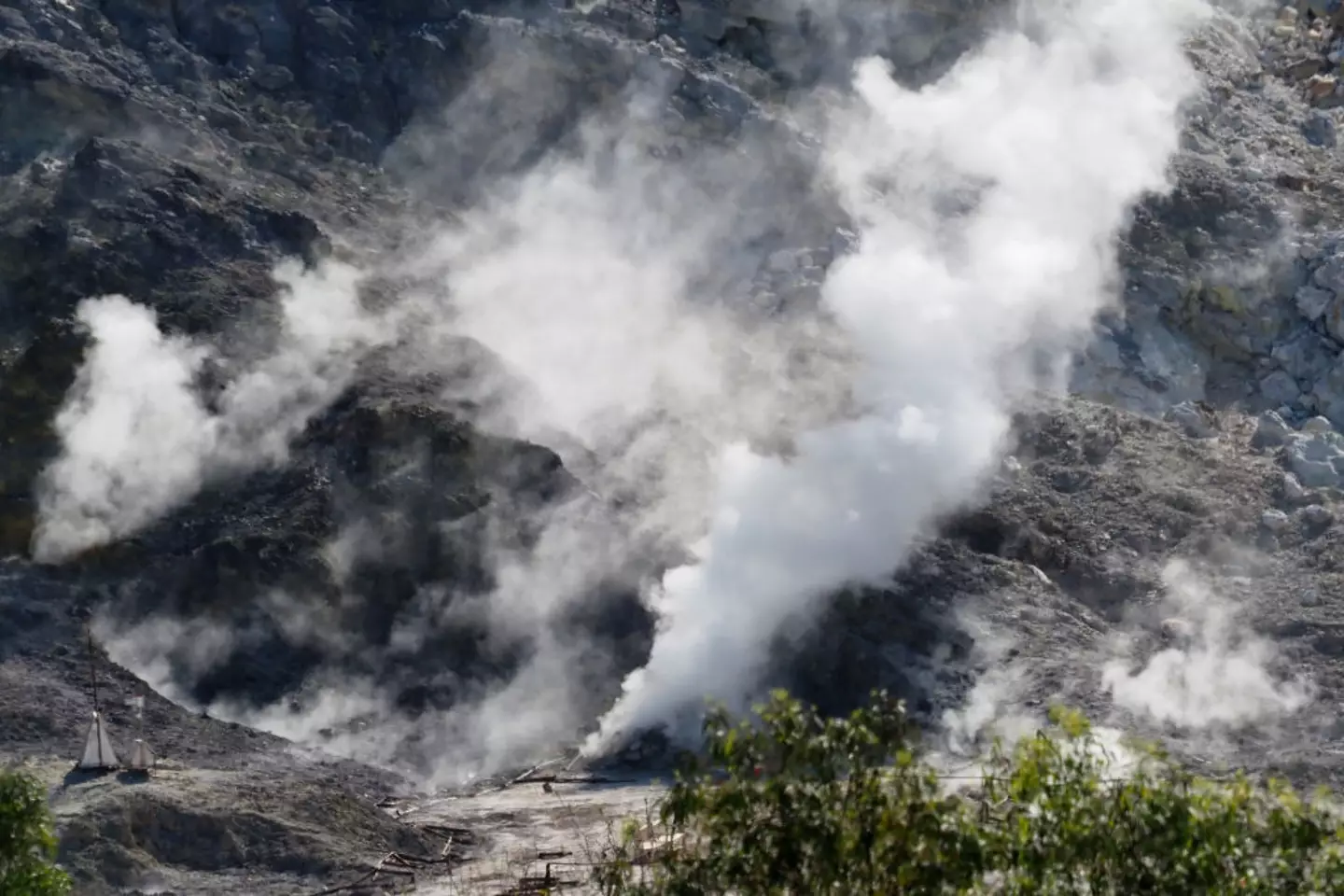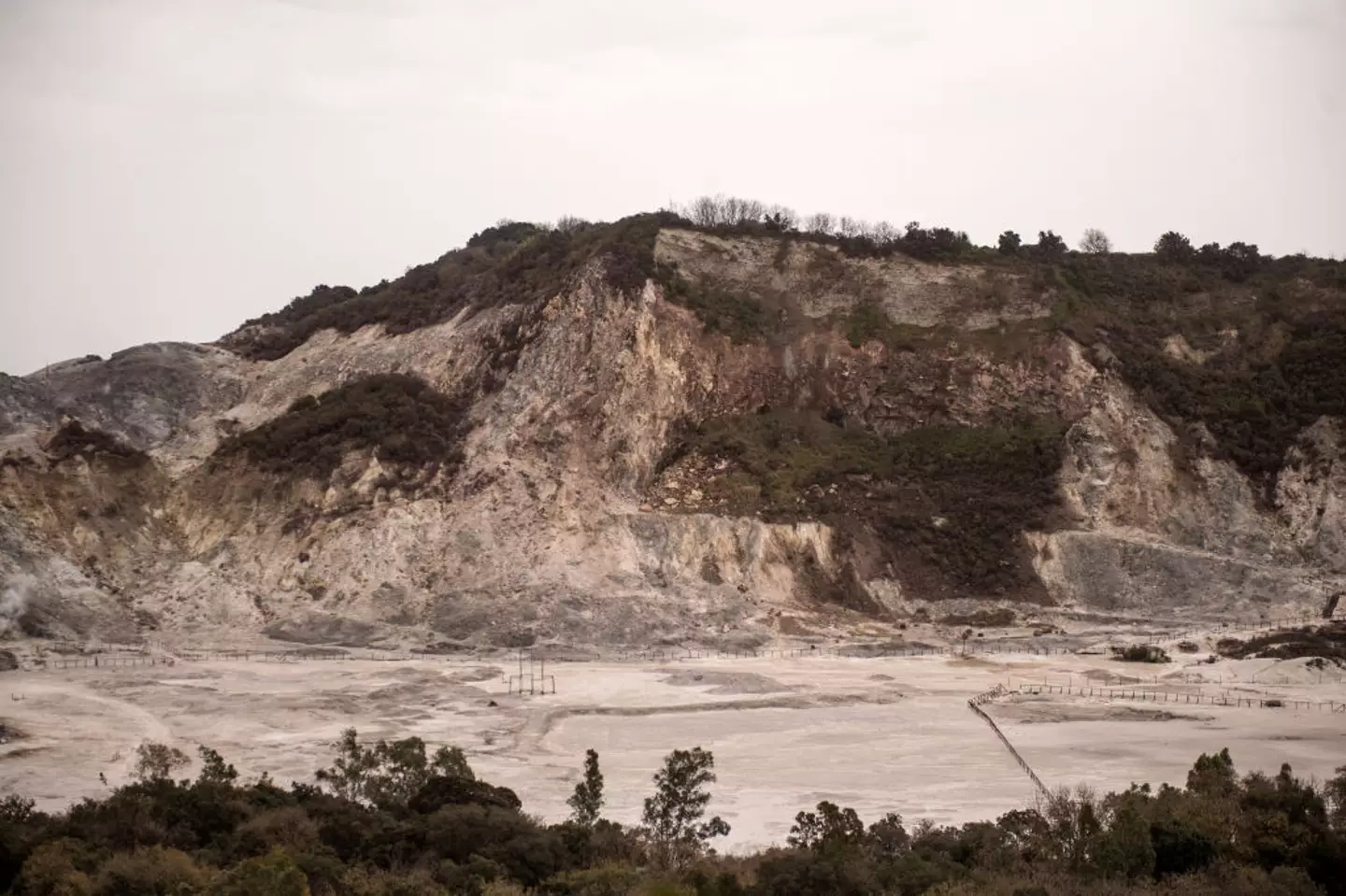
One of the world's most dangerous supervolcanos could be on the brink of a devastating eruption, as scientists issue warnings claiming that it could plunge the planet into chaos.
Volcanoes are some of the most fascinating yet dangerous natural phenomenons across the world, and they remain somewhat unquantifiable by even the most knowledgable experts in the scientific world.
Underwater volcanoes in the arctic could have catastrophic effects on global sea-levels if they erupt in their hundreds, and only recently were we able to observe jaw-dropping footage of a 1,000 foot magma fountain in Hawaii.
Scientists have now alerted people towards a far more dangerous prospect currently brewing in Italy though, as there's a historic supervolcano that could very well be on the verge of eruption.
Which supervolcano have scientists issued a warning for?
As reported by the Daily Mail, the Campi Flegrei volcanic caldera near Naples in Italy is an area of particular danger right now, and multiple warning signs point towards an imminent eruption which would likely cause catastrophic damage.
Advert
Translating literally to 'burning fields', this large cauldron-like supervolcano is actually part of the Campanian volcanic arc that also includes the infamous Mount Vesuvius that laid Pompeii to waste in 79 AD.

The sheer size and magma build up within Camp Flegrei could possibly produce an event on that scale too if (or potentially when) it does erupt too, with the risk stretching to roughly 4,000,000 people in the wider metropolitan area of Naples.
What signs are there that it'll erupt?
Scientists have highlighted two primary signs that indicate the risk of eruption with Campi Flegrei, with the first being the increase in seismic activity in the surrounding area.
More than 3,000 tremors (amounting to smaller earthquakes) have been recorded in the last six months, and it's extremely common for eruptions to occur following heightened seismic activity due to the pressure that builds up inside the volcano.
This pushes the magma upwards to the top of the crater, and once it breaks through that's when the lava and magma is released.

Additionally, researchers have also noticed a jump in gaseous emissions releasing from Campi Flegrei, with daily levels of carbon dioxide estimated to be between 4,000 and 5,000 tons.
Volcanoes can release gas when the rocks inside naturally interact, but around 80% of the carbon dioxide currently emitting from the volcano is understood to be a consequence of magma that sits just a few miles under the surface.
How dangerous would the eruption be?
As mentioned, if Campi Flegrei were to erupt then it would affect roughly 4,000,000 people in the area surrounding Naples, with the vast majority of the damage affecting the city.
This would also stretch to nearby towns such as Pozzuoli, and damage would likely be catastrophic with buildings and other major structures destroyed by a combination of lava, hot gas, and ash clouds.
It would also have a knock-on effect on conditions after the eruption, as access to power, water, and other essential utilties would likely be cut off, making life extremely difficult.
One of the biggest risks is that it's difficult for scientists to accurately predict when an eruption like this will occur, making any evacuation measures prove challenging to organize.
Campi Flegrei hasn't erupted in nearly half a millennia, with the last one coming all the way back in 1538, but many are hoping that wait continues as the results could be horrific.
